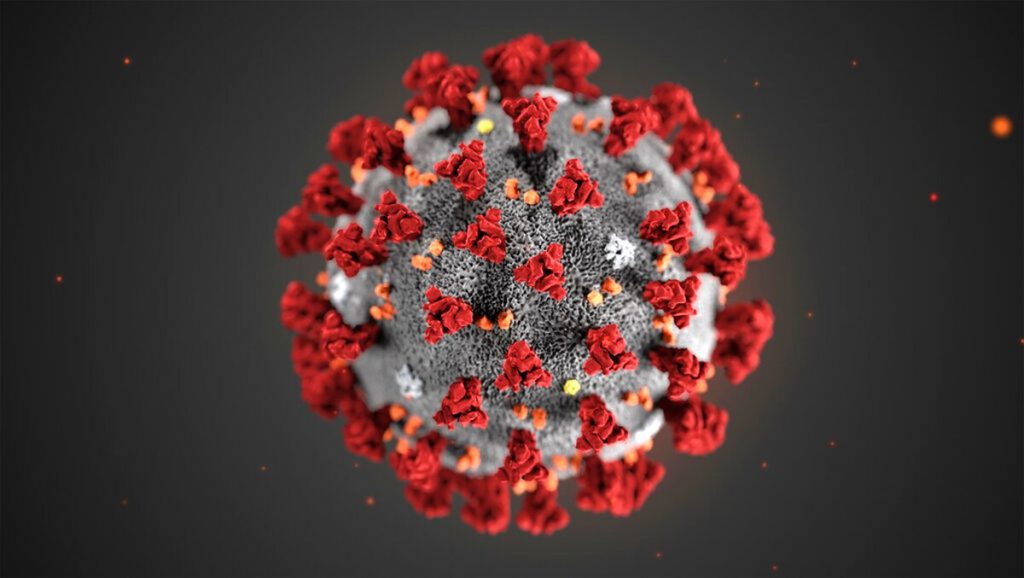Fast Spreader COVID-19 Variant In Milwaukee
Arrived a month ago. Study shows variant doubling infections every 10 days in the U.S.
The COVID-19 variant first discovered in the United Kingdom, understood to spread faster and potentially cause more severe disease, has been in Wisconsin for more than a month. The City of Milwaukee has now reported that the first case in the city was identified on January 28th.
During a press briefing Tuesday morning, Interim Health Commissioner Marlaina Jackson said local public health officials “anticipated” that the variant would eventually be found in this part of the state.
These cases in Eau Claire were unrelated to each other and involved no recent history of international travel, indicating that the variants are spreading within the community.
The variant was first discovered in southeastern England in September 2020. It’s not the only COVID-19 variant in circulation around the world, and public health officials are not surprised by the appearance of variants. When the variant from the UK first appeared in the state, Dr. Ryan Westergaard, chief medical officer for the Department of Health Services Bureau of Communicable Diseases, said, “Mutations among viruses are very common. It’s not unusual – in fact, it’s expected.”
But that doesn’t mean there aren’t any concerns about the variant known as B.1.1.7.
Early research from the London School of Hygiene and Tropical Medicine found the variant to be approximately 56% more transmissible than previous strains of the virus. And the high number of mutations undergone by the virus before it was detected indicated significant evolution of the virus “possibly in a chronically infected host,” a pair of researchers wrote in the Journal of the American Medical Association (JAMA).
When the variant was discovered, COVID-19 was raging in the UK, so the authors of the JAMA wrote that it “has seemingly achieved dominance by outcompeting an existing population of circulating variants.”
At first researchers and public health officials said the new variant was not likely to lead to worse health outcomes than previous variants, other than increased transmission. That’s no longer the case. There is research, being held up by the Centers for Disease Control and Prevention (CDC), that indicates the variant is associated with an increased risk of death.
In the U.S. this variant is doubling the number of infected every 10 days, Weston said, quoting a preliminary study released this month. “So that’s not too big a deal when it starts off, one person then two people… But when they quickly ramp up, we get to 1,000 and then 2,000 and then 4,000 and then 8,000 and so on, and that has a major impact.”
“And being more transmissible, that means more cases, and being more severe that means more hospitalizations and more deaths,” he said.
Weston said “there’s little doubt” that this is coming. But the spike can be mitigated through personal precautions and vaccination, he said.
Still, the answer is not entirely settled as to how the current vaccine will affect the new variant. The current line from the CDC is that the new variants, B.1.1.7 among them, are still recognized by the antibodies produced by the vaccine, but it’s unclear what level of effectiveness the vaccines will retain against them.
If you think stories like this are important, become a member of Urban Milwaukee and help support real, independent journalism. Plus you get some cool added benefits.
More about the Coronavirus Pandemic
- Governors Tony Evers, JB Pritzker, Tim Walz, and Gretchen Whitmer Issue a Joint Statement Concerning Reports that Donald Trump Gave Russian Dictator Putin American COVID-19 Supplies - Gov. Tony Evers - Oct 11th, 2024
- MHD Release: Milwaukee Health Department Launches COVID-19 Wastewater Testing Dashboard - City of Milwaukee Health Department - Jan 23rd, 2024
- Milwaukee County Announces New Policies Related to COVID-19 Pandemic - County Executive David Crowley - May 9th, 2023
- DHS Details End of Emergency COVID-19 Response - Wisconsin Department of Health Services - Apr 26th, 2023
- Milwaukee Health Department Announces Upcoming Changes to COVID-19 Services - City of Milwaukee Health Department - Mar 17th, 2023
- Fitzgerald Applauds Passage of COVID-19 Origin Act - U.S. Rep. Scott Fitzgerald - Mar 10th, 2023
- DHS Expands Free COVID-19 Testing Program - Wisconsin Department of Health Services - Feb 10th, 2023
- MKE County: COVID-19 Hospitalizations Rising - Graham Kilmer - Jan 16th, 2023
- Not Enough Getting Bivalent Booster Shots, State Health Officials Warn - Gaby Vinick - Dec 26th, 2022
- Nearly All Wisconsinites Age 6 Months and Older Now Eligible for Updated COVID-19 Vaccine - Wisconsin Department of Health Services - Dec 15th, 2022
Read more about Coronavirus Pandemic here




















